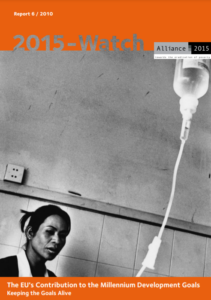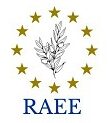Author: Mirjam van Reisen with the assistance of Maxi Ussar
Research Coordinator and Drafting Assistant: Maimuna Kabatesi
Junior Research Assistants: Anne Dankert and Justine Aurian
Project Coordination: Olive Towey, Concern – Dublin, Ireland
Year: 2010
Language: English
Published By: Alliance2015 c/o IBIS, Nøerrebrogade 68B, 2200 Copenhagen N, Denmark

Summary
The Millennium Development Goals (MDGs) embrace two notions of what is essential to eradicate poverty. Firstly, they define the way out of poverty in terms of universal human rights: access to food, basic education, basic health care, clean water and a clean environment, and they insist on gender equality in all of these rights. Secondly, they define the achievement of the eradication of poverty as the joint responsibility of citizens, governments, and international institutions: it is a partnership and can only be achieved if everyone contributes.
In 2010, the Millennium Development Goals are at a crossroad. It is in our response to these crises (climate, financial, economic and food) that their fundamental meaning is being tested, as well as the sincerity of the international community in carrying the values they contain to the centre of politics.
In 2010, the European Union also finds itself at a crossroad. In a rapidly changing world it can either seek to compete in a race towards greater inequality, or it can participate with conviction in shaping a world in which there is a place for everyone. The Millennium Development Goals make all of us individually responsible for making this choice, and for acting upon it, wherever we find ourselves.
